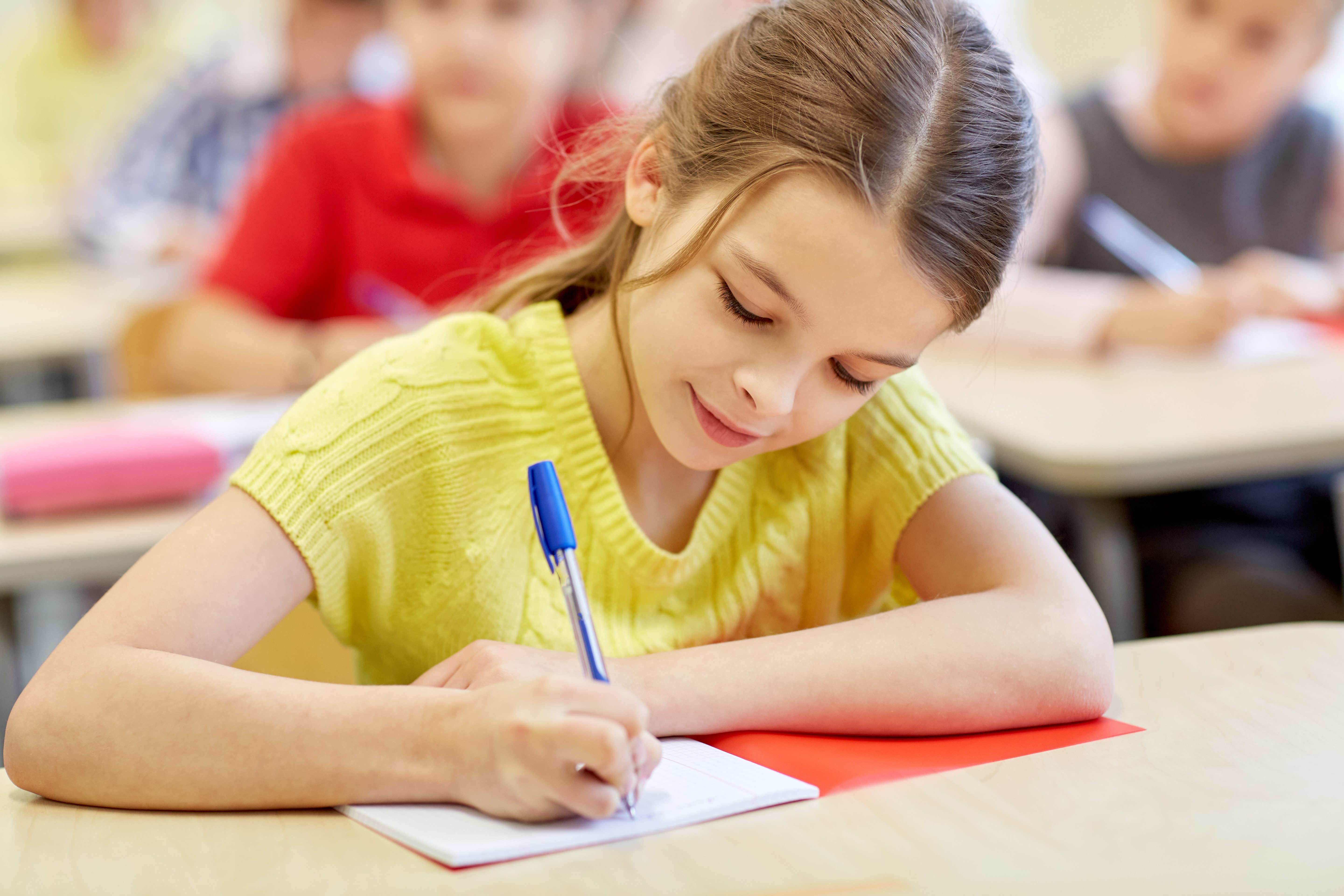The objectives of this policy:
 Ensure a consistent approach to homework across
the school.
Ensure a consistent approach to homework across
the school.
 Make sure teachers, parents and children are
clear about homework expectations.
Make sure teachers, parents and children are
clear about homework expectations.
 Make sure teachers, parents and children are fully
aware of their role in homework.
Make sure teachers, parents and children are fully
aware of their role in homework.
The purpose of homework:
To strengthen, reinforce and broaden skills and
understanding, especially in English and
Mathematics.
 Give parents and children the opportunity to
work together.
Give parents and children the opportunity to
work together.
 Allow parents to get an idea of what their children
are learning at school.
Allow parents to get an idea of what their children
are learning at school.
 Enable children to progress by becoming more
autonomous learners.
Enable children to progress by becoming more
autonomous learners.
 Allow children to immerse themselves more
deeply in the subject they are learning at school.
Allow children to immerse themselves more
deeply in the subject they are learning at school.
The role of the child:
Take on more responsibility to make sure
they have everything they need to finish their
homework each week.
 Make sure they understand the tasks that
have been defined.
Make sure they understand the tasks that
have been defined.
 Make the same effort as in class
Make the same effort as in class
 Turn in your homework on time.
Turn in your homework on time.
 Consider any homework feedback
Consider any homework feedback
School-wide overview of key areas of
homework :
What should children do if they don't do their
homework?
Children are expected to do homework and
parents are expected to help their child with it.
In the first case, if the child has not done his
homework, the class teacher talks to them.
If the child still does not complete their
homework, the class teacher will contact the
parents/guardians, working with them to help
and support the child with their
homework.
What if your child says they haven't done their
homework?
Teachers will assign regular homework.
if the parents are unsure about the child’s
homework, ask the class teacher.
There may be times when homework is not
given, such as if the teacher is absent, but
teachers will tend to avoid this.
We're committed to encouraging kids to take
more responsibility for doing their homework
together and getting it done on time (and asking
their teacher if they need another copy of their
homework), and we appreciate their support to
do this.
What might homework look like at each stage?
EARLY YEARS FOUNDATION STAGE:
Collaborative learning is central to children's
concerns at EYFS. Now is the perfect time to lay
the groundwork for continuing to work from
home.
What homework will your child have?
English/Reading:
As children get older, the texts they read should
get harder and harder at the appropriate
level. Children can continue to read to an adult
or read on their own (provided an adult
supervises the task). The story, characters
and themes should be covered, as well as new
vocabulary. Older children need a clear
understanding of the story that goes beyond the
literal meaning of the text. The skill of inference
is important and should be developed whenever
possible. Children should be encouraged to read
all types of text, including fiction, non-fiction,
and poetry.
All children have a reading diary with tasks and
activities to complete each week.
Other English homework can be based on what
children are learning in class, such as focusing
on a specific item of spelling, punctuation, or
grammar.
Math:
This will also be based around what the children
have learned in class (consolidation or
extension). Resources are chosen cool.
All children must know the multiplication table
adapted to their age and are regularly reviewed
in class. By the end of Grade 4, all children
should know all of their multiplication tables up
to 12x12 and should be able to answer related
questions quickly.
Other program areas :
The work can be related to any other program
area, such as science or a subject. Teachers will
provide a themed website where children will
choose from several activities throughout the
semester and then participate in a celebratory
event to showcase their work later in the
semester. Classroom teachers will provide
specific information on this.
How can parents learn more about homework?
Each year, the group will inform parents about
homework at the parent-teacher conferences
held at the beginning of the year and in the
semi-annual newsletter. They are also available
on the class page on the school website.
Teachers will use a variety of systems to hand in
homework and communicate this clearly to
children and parents at the start of each year. If
parents need advice on how to help their
children with their homework, they can talk to
the class teacher or assistant.
How will homework be marked?
Teachers mark children's homework in various
forms including peer marking, self-marking
or teacher/TA marking and will be implemented
in accordance with schools marking policies.
Top tips for parents on how to effectively help
your child with homework
JOIN
Helping with your child's homework is a great
opportunity to find out more about your child's
academic performance. You can find out what
interests them and where they have
problems. This in turn, can give you a reason to
talk to their teacher, ask them specifically what
they want from their assignment and how they
are using it in their class. May be they even give
too much homework, or multiple teachers give
homework at the same time. To save time, you
can always write notes to the teacher in the
margins or in your homework journal
FIND A HOMEWORK AREA:
Designate a designated area for your child to
do homework. It should be free from
distractions, be it social media or annoying
siblings. Make sure the homework space is well
stocked with pens, pencils, and anything else
they might need.
KEEP THE PRINCIPLE:
Building structure and routine is really helpful
for most children, and we suggest setting
regular times for homework. You know when
your child works best. Some people need a
break and some playtime first, while others
prefer to check off the homework list
sooner. Either way, be sure to find a regular
schedule that works for your child.
PERFECT PLANNING :
Not all homework has to be done the next day,
so keep a reliable homework diary so you and
your child get it done on time. It will also help
your child manage their time and plan longerterm projects so they don't leave things to the
last minute. It is a skill they will need in life.
ACTIVELY MOTIVATE YOUR CHILD:
You should never do homework for your
child. However, it is a good idea to discuss
homework with them. Explanation not only
reinforces what was learned in class, but by
demonstrating engagement, you are actively
motivating your child in their work. They want
to impress you.
The role of the school:
Provide parents with a clear homework
policy.
 Ensure complete and consistent compliance
with this policy.
Ensure complete and consistent compliance
with this policy.
 Provide support to parents by providing
information about homework and
expectations.
Provide support to parents by providing
information about homework and
expectations.
The role of the teacher:
Plan and organize homework according to the
child's needs.
 Clearly communicate homework requirements
to children and parents.
Clearly communicate homework requirements
to children and parents.
 To grade and give feedback on assignments.
To grade and give feedback on assignments.
 Be available to discuss homework with
parents and children.
Be available to discuss homework with
parents and children.
 Inform the parents if there is a problem with
the homework.
Inform the parents if there is a problem with
the homework.
The role of a parent:
Help your child with homework.
 Make sure their child does their homework to
a high standard and turns it in on time.
Make sure their child does their homework to
a high standard and turns it in on time.
 Provide the child with appropriate facilities to
do homework.
Provide the child with appropriate facilities to
do homework.
 Provide the child with the necessary resources
to do their homework.
Provide the child with the necessary resources
to do their homework.
What homework will your child have?
Reading
Special attention is given to reading as
homework. All children are expected to read
regularly. This should be done in two ways:
Adults read to children:
Parents are encouraged to use school reading
charts, library books and their children's own
books at home to familiarize them with print
and stories. Parents should encourage their
child to point to the words as they are read. The
discussion of books is also important.
Children read to an adult:
When ready, children begin to take home books
of simple words to read to an adult. They will
also be able to access the books online. Again, it
is important to encourage the child to point to
the words as they are read. Discussing the story
and characters and asking questions about the
book will help your child understand the
language. Adults should use a reading diary to
record home readings, and children should try
one of their diary reading exercises every 2
weeks, with support from an adult at home if
needed.
Letter formation and phonetics:
EYFS teachers will provide worksheets for
parents to help children form the letters. This
shows where to start and end when forming
each letter and what each letter should look
like.
Giving children the opportunity to practice
writing letters as well as developing drawing
skills with a variety of tools will give them
valuable practice. It is important to observe
them and sensitively correct any errors so that
they do not acquire bad habits.
Common exception words :
Kids learn to read words within the framework
of letters and sounds, but also have word tiles to
help them learn the most common words. It is
helpful for the child's development to practice
these words regularly using the "tricky words"
keychain sent home. This will be added as
children learn more about common exception
words.
How much time do you have to devote to
homework at kindergarten?
About 45 minutes per day (depending on the
level of the child) for English lessons, including
reading
STANDARD 1 :
For Standard 1 children , we
encourage parents to work with the child to help
with homework. The focus is still on English and
reading, but we include ways to support
children with important math skills.
What homework will my child have?
Reading:
Reading regularly is essential when
children are in their first and second years of
life. Each evening, the children will bring their
books home to read, and the role of the adults
will be to listen to them and support them. It is
important to remind them to use different
strategies for reading new words, saying words
aloud, looking at pictures and looking for
sounds in words - these are ways a child can
read an unfamiliar word.
It is equally important to discuss the book to
ensure that the child understands what he is
reading. Children will have a reading log that
parents/guardians must sign or comment on
each time they read with the child. Every 2
weeks, children should attempt one of the
newspaper reading tasks. Children will be
changed books to read once a week, and they
should read to an adult every day at home.
General Word Exceptions :
Children will receive daily phonics lessons
throughout STANDARD 1, which will also
include ways children can build safe visual
vocabulary. It is imperative that children build
up a bank of words that they can read and write
at a glance.
Children can bring home keychains or word
jars to aid their learning, depending on what
phase of sound they are in at school. Parents can
help children learn them by practicing them
regularly and often, both by reading them and
by helping to write them.
Math:
Children will be given math homework to
practice important skills they should have by
the time they complete STANDARD 1.
Parents can support their child by giving them
plenty of opportunities to practice these skills
 Children will have confidence in their
multiplication tables for 2, 5 and 10. They will
be able to pronounce them in order and
confuse them.
Children will have confidence in their
multiplication tables for 2, 5 and 10. They will
be able to pronounce them in order and
confuse them.
 Children will be able to double each number
up to 20.
Children will be able to double each number
up to 20.
 Children will be able to halve each even
number up to 20.
Children will be able to halve each even
number up to 20.
 Children will know their link count of all
numbers up to 20. This means they will know
how to make each number, for example 5 can be
done 0 + 5, 1 + 4, 2+3, 3+2, 4+1, 5+0
Children will know their link count of all
numbers up to 20. This means they will know
how to make each number, for example 5 can be
done 0 + 5, 1 + 4, 2+3, 3+2, 4+1, 5+0
 Children will be able to tell the time when it is
o'clock, half o'clock, quarter and quarter on
digital and analog clocks.
Children will be able to tell the time when it is
o'clock, half o'clock, quarter and quarter on
digital and analog clocks.
 Children will use money with
confidence. They must know the names of the
coins and be experienced in adding,
subtracting and finding change.
Children will use money with
confidence. They must know the names of the
coins and be experienced in adding,
subtracting and finding change.
STANDARD 2: As children grow, homework
gives them the opportunity to develop
independent learning skills. It is important for
parents to support their children, but good selflearning habits should be encouraged from an
early age.
The main focus of homework at standard 2 is
English and Maths. However, children will be
given more varied tasks in other areas of the
curriculum, such as science and subjects.
CULTIVATE PRIDE IN THEIR WORK:
Children should be able to celebrate the work
they do at home. If your son or daughter has
written a great poem or is particularly proud of
their artwork, hang it on the wall. Nurturing
pride in your child's work will help build their
confidence and also encourage them to do their
homework to the best of their abilities.
BE A MODEL:
As the old saying goes, you live and learn. If
your child sees you working hard, doing the
bills, or even just perusing a book, that
normalizes the whole homework process for
him. Often what you do will have a far greater
impact than what you say.
ENGAGE YOUR PAGES :
While it's important for your child to adjust to
independent work, a homework club once or
twice a week with other kids in their class can
be helpful. Sometimes a classmate will be able to
explain a complex problem more clearly than
you. It also gives you an evening off!
SAY THE FUTURE :
The teacher acts as a facilitator in the
classroom, helping children understand complex
concepts. You can help your child prepare for
future lessons by reviewing the work ahead of
time. Preparation of this kind is another
important discipline to be learned for a
lifetime.





 Music includes activities in which students learn
by doing. It prioritizes creativity, process
participation and technical skills, providing an
opportunity to explore and shape the emotional,
intellectual and spiritual aspects of life.
Music includes activities in which students learn
by doing. It prioritizes creativity, process
participation and technical skills, providing an
opportunity to explore and shape the emotional,
intellectual and spiritual aspects of life. 




 Health promotion is an integral part of our program
and we recognize the importance of empowering
children to make informed choices about what, when,
where and why they eat.
Health promotion is an integral part of our program
and we recognize the importance of empowering
children to make informed choices about what, when,
where and why they eat.